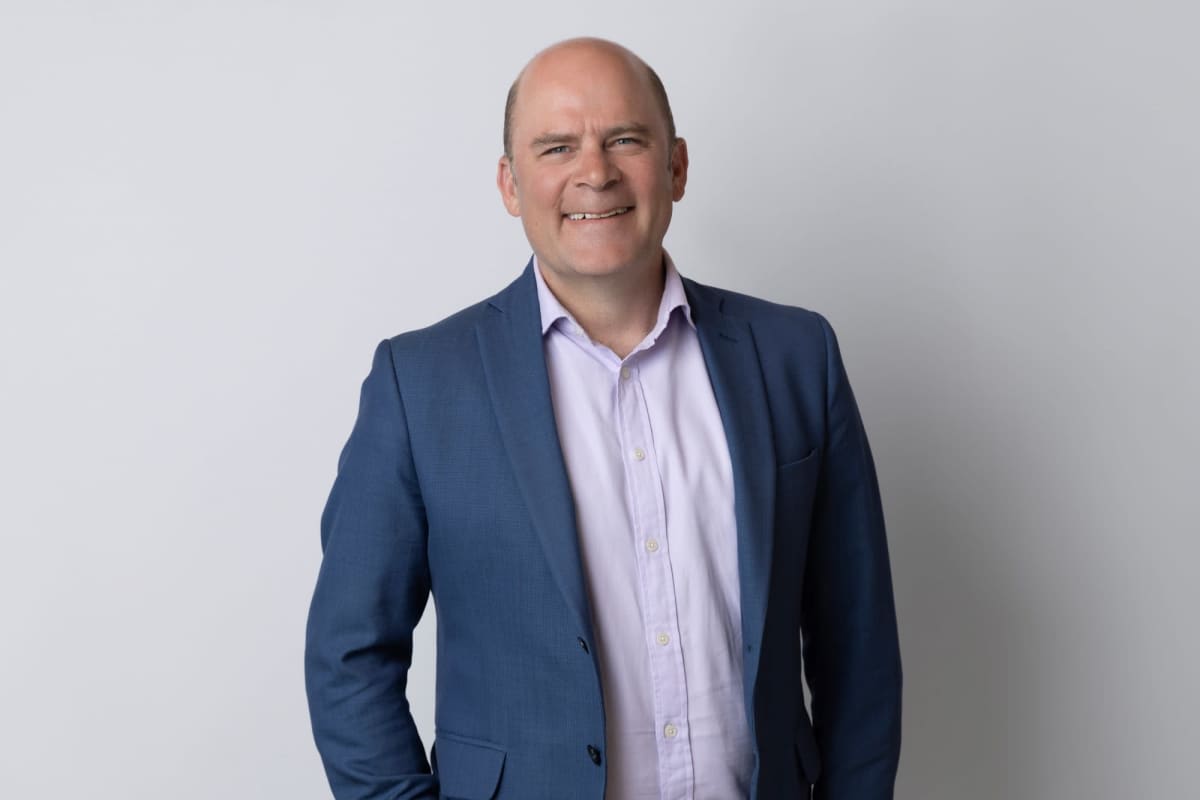Invest
Financial planning basics
Having a sound financial plan is the building block for reaching financial independence. Here’s how to get started with financial planning.
Financial planning basics
Having a sound financial plan is the building block for reaching financial independence. Here’s how to get started with financial planning.

Achieving financial independence is an endeavour that requires careful planning. To secure steady finances for the long-term, a person must take precautions in securing wealth by carefully planning and plotting their course of action—beginning with a blueprint called a ‘financial plan’.
When creating a financial plan, consider these three very important things:
- Awareness of the current financial situation;
- Having an important goal; and,
- Remaining vigilant with the plan.
A person needs to know their current income and expenses, create a plan and modify their budget according to an important financial goal, and ensure that they follow the plan diligently.
Creating a plan
The most important part of financial planning is for the individual to get a clear picture of their current financial standing in order to determine where they want to go and how they plan to get there.

You need to connect two points to make a line
The two points everyone must plot is ‘where they are right now’ and ‘where the finish line is’. The finish line doesn’t have to be retirement or death—rather, it should be an achievable reason or goal that states why there is a need for a financial plan.
They can consider why working hard and having money is important—aside from paying the bills—such as the desire to start a family or open their own business. They don’t have to settle for the first expensive goal that comes to mind. Try to narrow down these goals by writing at least 10 every day without recalling the previous list.
They may not be the same for a while, but using an elimination process to finally arrive at a worthy goal means ending up writing the same goal consistently for at least a week.
If the goal is important enough, it will serve as the foundation to build wealth. It can also help make immediate spending less attractive and gratifying because they can evaluate whether an immediate expense is worth delaying their goals.
The path between the starting point and finish line usually have twists and turns, so it’s important to consider obstacles when mapping out current finances.
Consider what steps must be taken to reach the goal
Once they have a goal in mind, they need to create different ways to reach it.
Some steps may be conservative while others are ambitious, but they don’t have to limit themselves as long as the ideas are doable. They don’t have to follow every path imagined—determine which paths are necessary and which path can enable them to reach their financial goals faster.
Create a budget and spending plan
The budget plan could bring a person closer to their financial goals, as long as one’s budget and spending are within reasonable limits.
To begin a budget plan, do the following:
- Write all current incomes;
- Subtract all expenses
Expenses must be the sum of all recurring but necessary expenses, such as utility bills and debt payments, and negotiable expenses - Determine which expenses can be lowered or scrapped entirely, and decide whether the latter could be turned into savings or invested.
It may seem stressful in the beginning, but creating a budget plan lowers stress by simplifying the process and giving more control over their finances.
Execution
Once a sustainable budget plan exists, execute it immediately.
Save as much as possible
Allocate a portion of their income as savings as soon as any new income arrives. Any expense freed up by the budget plan should also be stashed away as savings. The amount saved may be small in the beginning, but the effort to save will never be negligible because savings will accumulate over time.
Line up debts and pay them all
Saving money may be difficult if there are debts waiting to be paid. The best way to grow savings fast is to eliminate all debts as soon as possible. This step should never be forgotten in any financial plan.
Don’t be embarrassed to ask for directions when lost
Those who are having difficulties creating or executing a plan can seek professional financial advice. Financial advisors can make suggestions on what can be improved in a financial plan or help their clients create one that is most suited to their current circumstances. Just be wary of steep fees, if there are any.
Important things to remember
Goals can change over time and that’s okay. Don’t get discouraged to start over. Find ways to reshape existing financial plans to fit new goals instead of holding on to outdated strategies.
Keep financial plans clear and simple. The more complex a plan is, the harder it will be to follow. Likewise, if it’s easier for others to understand, it could help in stopping persistent people from derailing the plan or planting seeds of doubt about the plan’s feasibility.
Re-evaluate strategies when conditions change. Just like how personal goals can change over time, the ‘best’ financial or investment strategies may also change depending on market conditions. Make sure to evaluate whether the current plan still applies or it’s time to make changes.
This information has been sourced from Nest Egg.
About the author

About the author


Advice
From broker tips to boardroom playbook: five investable lessons for disciplined growth in 2026
The real edge in 2026 won’t come from a hot tip; it will come from disciplined risk controls, clean data, and governance that can survive a stress test. Australia’s regulatory and technology context – ...Read more

Advice
Beyond Haggling: How data, speed and governance reset negotiation power in hot markets
When markets run hot, most buyers try to talk price; the best ones redesign the game. In Australia’s tight property, retail and software markets, the real edge comes from information asymmetry, clean ...Read more

Advice
Higher-for-longer, on purpose: How Australian CFOs are resetting playbooks after the RBA’s hawkish signal
The Reserve Bank’s deputy governor has firmly pushed back on near-term rate cut hopes, despite softer headline inflation. For executives, that’s not a macro footnote; it’s a new operating baseline. ...Read more

Advice
State Street economist highlights challenges for RBA amid shifting Australian labour market
In the wake of the latest employment data release, State Street, a global leader in financial services with a staggering US$49.0 trillion in assets under custody and administration, and US$5.45 ...Read more

Advice
Higher-for-longer: How one Australian retailer turned inflation headwinds into operational gains
Inflation’s latest pulse has crushed near-term rate-cut hopes and tightened the screws on mortgage-stretched households—reshaping demand patterns across Australian retail and servicesRead more

Advice
Easing bias, hard choices: What a potential RBA rate cut means for corporate strategy
A softening labour market has put an RBA rate cut back in play. For business leaders, the real question isn’t whether the cut lands in November or a subsequent meeting—it’s how to reposition balance ...Read more

Advice
Advisers tip managed portfolios into the mainstream: North report
In a significant development for the financial advisory sector, AMP's inaugural North Managed Portfolios Insights Report has forecasted that 2025 will mark a pivotal moment for the adoption of managed ...Read more

Advice
Human advantage in an AI world: Why mortgage brokers still win — and how to scale it
Only 6% of borrowers say they would use AI to research mortgages, according to Agile Market Intelligence, underscoring a trust gap in high‑stakes finance that keeps brokers central to the buying ...Read more

Advice
From broker tips to boardroom playbook: five investable lessons for disciplined growth in 2026
The real edge in 2026 won’t come from a hot tip; it will come from disciplined risk controls, clean data, and governance that can survive a stress test. Australia’s regulatory and technology context – ...Read more

Advice
Beyond Haggling: How data, speed and governance reset negotiation power in hot markets
When markets run hot, most buyers try to talk price; the best ones redesign the game. In Australia’s tight property, retail and software markets, the real edge comes from information asymmetry, clean ...Read more

Advice
Higher-for-longer, on purpose: How Australian CFOs are resetting playbooks after the RBA’s hawkish signal
The Reserve Bank’s deputy governor has firmly pushed back on near-term rate cut hopes, despite softer headline inflation. For executives, that’s not a macro footnote; it’s a new operating baseline. ...Read more

Advice
State Street economist highlights challenges for RBA amid shifting Australian labour market
In the wake of the latest employment data release, State Street, a global leader in financial services with a staggering US$49.0 trillion in assets under custody and administration, and US$5.45 ...Read more

Advice
Higher-for-longer: How one Australian retailer turned inflation headwinds into operational gains
Inflation’s latest pulse has crushed near-term rate-cut hopes and tightened the screws on mortgage-stretched households—reshaping demand patterns across Australian retail and servicesRead more

Advice
Easing bias, hard choices: What a potential RBA rate cut means for corporate strategy
A softening labour market has put an RBA rate cut back in play. For business leaders, the real question isn’t whether the cut lands in November or a subsequent meeting—it’s how to reposition balance ...Read more

Advice
Advisers tip managed portfolios into the mainstream: North report
In a significant development for the financial advisory sector, AMP's inaugural North Managed Portfolios Insights Report has forecasted that 2025 will mark a pivotal moment for the adoption of managed ...Read more

Advice
Human advantage in an AI world: Why mortgage brokers still win — and how to scale it
Only 6% of borrowers say they would use AI to research mortgages, according to Agile Market Intelligence, underscoring a trust gap in high‑stakes finance that keeps brokers central to the buying ...Read more








